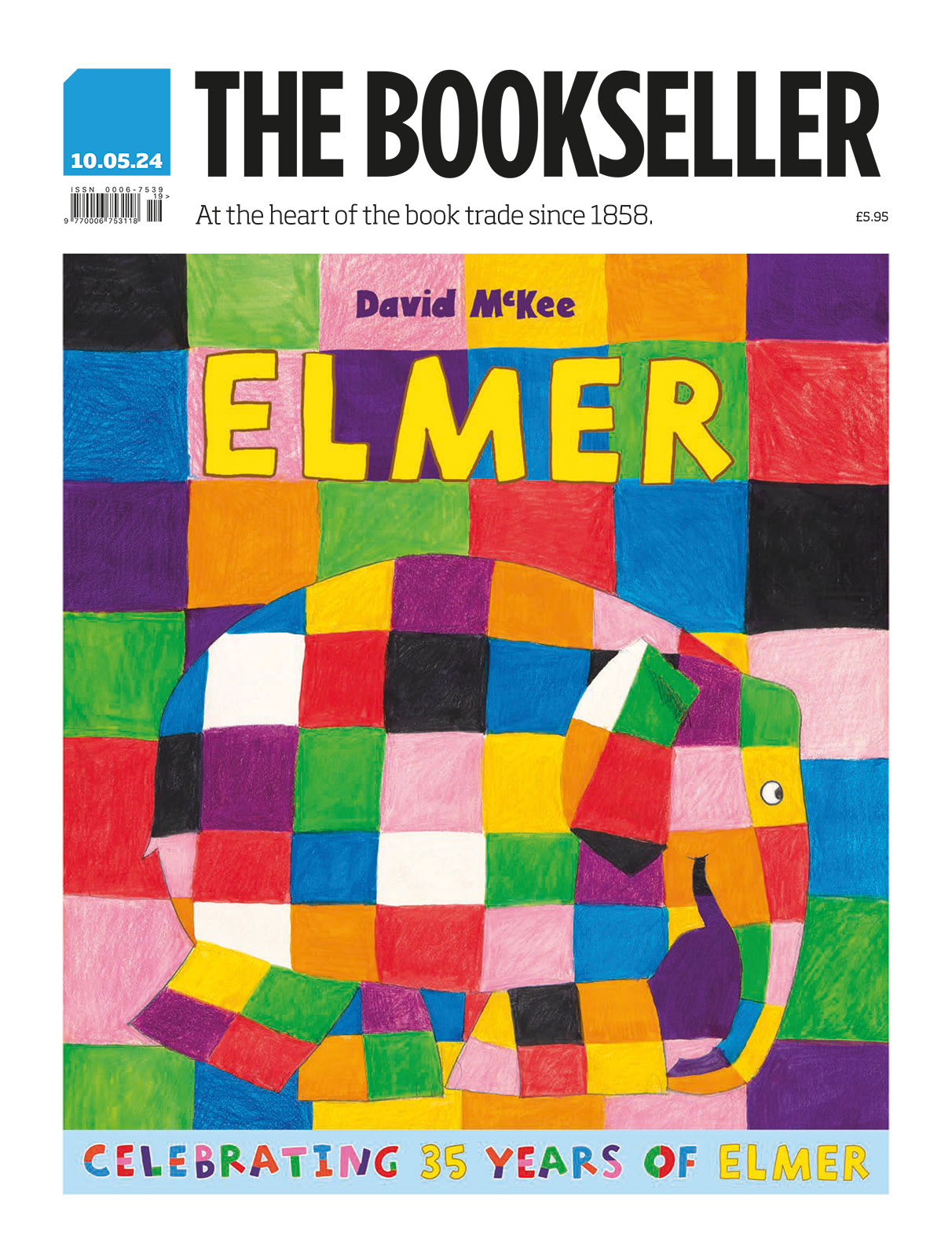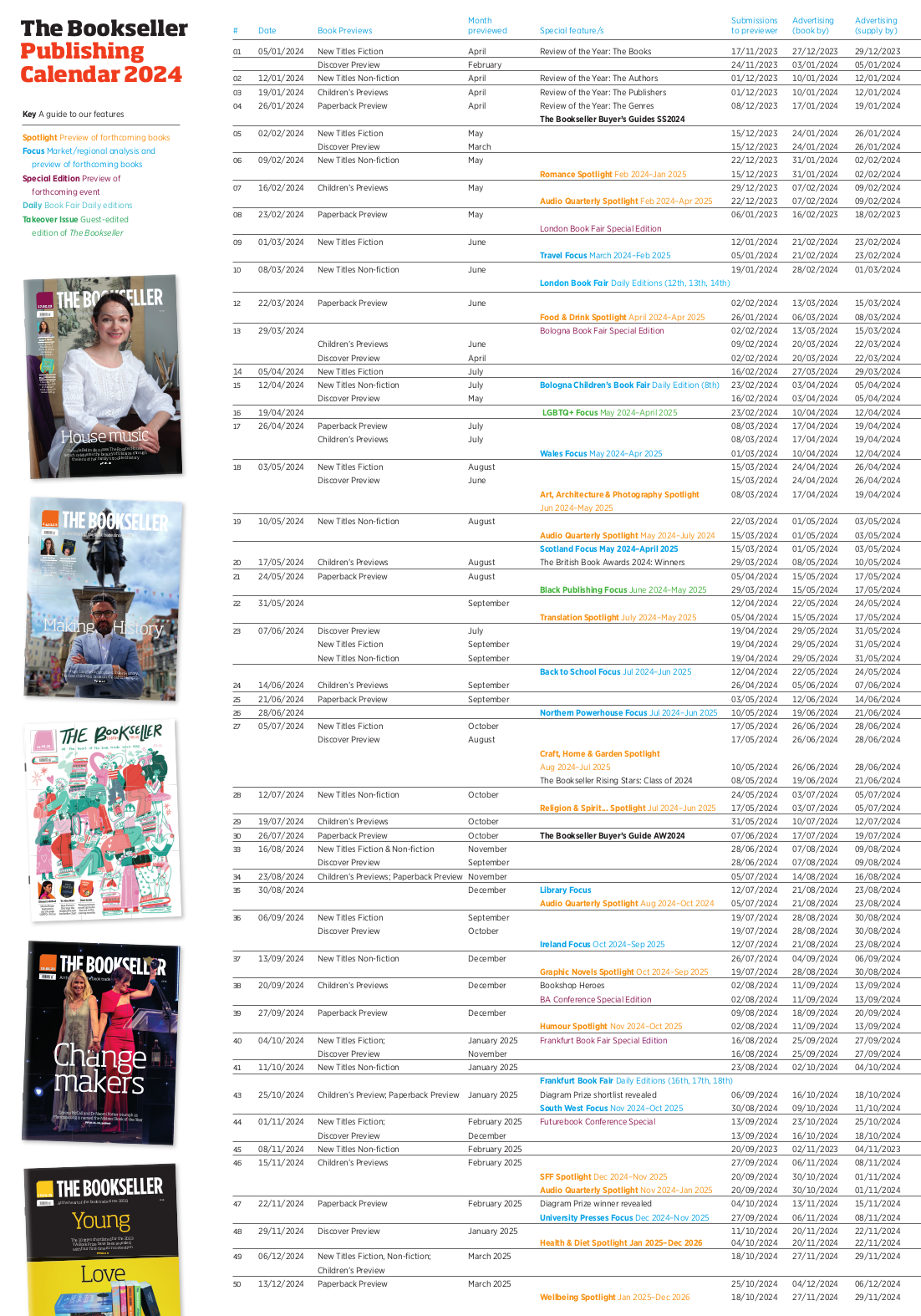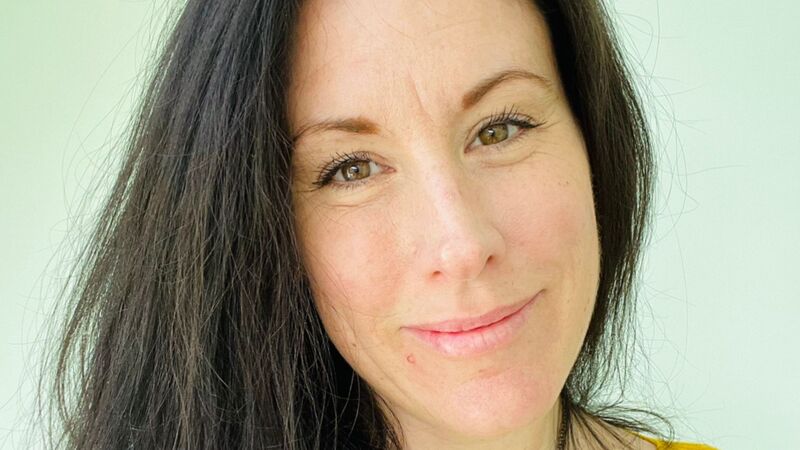You are viewing your 1 free article this month. Login to read more articles.
Safiya Sinclair | 'There wasn’t much space for me as a woman to grow and thrive'
 Caroline Sanderson
Caroline SandersonCaroline Sanderson is a non-fiction writer, editor and books journalist. Her books include a travel narrative, A Rambling Fancy: in the F ...more
Safiya Sinclair’s début poetry collection is about to be published in the UK for the first time but it already comes garlanded with praise and awards

Caroline Sanderson is a non-fiction writer, editor and books journalist. Her books include a travel narrative, A Rambling Fancy: in the F ...more
"Born four days late, a bruised almond/left puckering in the salty yolk,/the soft bone of my skull was concave,/a thumbprint in wax, like the coin/for the ferryman had been pressed there/overnight.”
This arresting description of her own birth is from Safiya Sinclair’s poem “Osteology”, which appears in her astonishing début collection Cannibal, publishing on National Poetry Day 2020 (1st October). Her poems explore themes of race, womanhood, colonial history and exile, but are also intimately rooted in the sights, sounds and rhythms of her Jamaican childhood.
The story of how Sinclair discovered her poetic voice is both fascinating and shocking. Now in her mid-30s, she was born in Montego Bay into a strict Rastafari family, and from a young age knew what it is to be an outsider and to go unheard in her patriarchal household. “My father is a militant Rasta man who is also a reggae musician. So there wasn’t much space for me as a woman to grow and thrive, or even have a voice,” Sinclair explains on the phone from Chicago, where she has been staying with her partner throughout lockdown.
“Rasta culture is one of the things that defines Jamaica in the global imagination, but for a long time, Rastafari were a persecuted minority. So when I was growing up, my sense of being out of place at home was compounded by the fact that my siblings and I were oddities wherever we went: we were the only Rasta children in our schools, for example. It was a strange bubble of alienation.” Sinclair is currently writing a memoir—How to Say Babylon—about this Rasta upbringing and the struggles she and her mother faced in emancipating themselves from it (Picador will publish in 2022). But it was to poetry that she initially turned, in an “act of survival”. “The page was the place I felt most myself. There I cultivated a voice, and an idea of my future self and what could be possible for a woman in the world,” Sinclair tells me.
Early start
Her first poems were written around the age of 12, and by the time she was 16 she was telling people: “I’m a poet”. But it was only after the “rude awakening” of moving to the US to study as an undergraduate that she began to work out what kind of poet she wanted to be. “I went to a very small college in Vermont with only 600 students, with only three black students in the entire school. When I got there, it was quite a shock having to think about my blackness in a way that I had never been confronted with in Jamaica. That experience started to define my poetry; along with the—I won’t even call them micro-aggressions... actually the straight-up aggressions I got from my white American classmates.”
Sinclair tells me of one incident, both appalling and defining. “I was writing short stories about my life in Jamaica, which included dialogue in patois. In a workshop, a classmate physically took the pen from me, crossed out all the dialect and said: ‘Can you say this in English?’ It was horrific. I fumed about it for a couple of days and then I went back to class with a manifesto I’d written, which said: ‘I will not be censored by corn-fed strangers from the Midwest!’” The incident marked a turning point in Sinclair’s trajectory as a writer. “For the first time I thought: ‘What do I want to say with my work?’” In her poem “Dreaming in Foreign”, she writes: “We are tongue- tied with the songs/of unknown birds, an extinct diction.”
It was also at this time that “The Tempest” became an important frame of reference for her poetry: Sinclair uses quotes from and about Shakespeare’s play to introduce each of the five acts of Cannibal. When she first read it at high school in Jamaica, Sinclair identified with the character of Miranda, “this daughter with an overprotective father who wants to shape her life and shield her from the truths of things”. But at university it was the character of Caliban—the “savage monster” enslaved by Prospero on his own island—who gained greater resonance for her.
Reading postcolonial studies of “The Tempest” led Sinclair to the discovery that the word “Caribbean” comes from the Spanish “canibal” (of which Caliban is an anagram). “So the naming of the Caribbean is based on Columbus’ belief that the native Carib people he met there ate human flesh,” Sinclair explains. In her poetry, she riffs powerfully on such notions of savagery and wildness, and eventually this startling etymological discovery was to provide her with the title of her début collection, and a sense of joined-up vocation as a poet.
Sinclair’s poetry has an extraordinary lyricism, suffused with the lushness of the landscape and natural history of Jamaica. “I spent a lot of time with my siblings in my youth, just running around the yard. And my mother would take us on nature walks, and point out the names of the flowers, animals and insects that we saw. For me that was all part of the magic of home and so I write my poems to be wildly blooming, teeming and blossoming.” But her references to wildness and what Sinclair calls “the impolite tropics” are also a metaphor for transgression and subversion, and for refusing to be cowed or silenced.
As Sinclair takes up a post this autumn as a post- doctoral research associate at Brown University in Providence, Rhode Island, Cannibal—originally published by the University of Nebraska Press in 2016—will arrive on UK shores already garlanded with praise and numerous awards. I ask Sinclair how she feels about being published here for the first time. “Being Jamaican I do feel a connection to the UK, so I’m really happy to finally have Cannibal available over there. I’ve also been watching the UK news and thinking about the Caribbean people who live there, and what’s been going on with the ‘Windrush’ generation.”
Jamaican vibe
Sinclair is one of the most singingly gifted poets I’ve ever read, and I long to hear her read all the poems in Cannibal aloud, especially when she tells me she strives to bring out their very Jamaican vibe when she does so. “A sense of drama, of movement, of dance, of beat is a large part of our history and our resilience. As Derek Walcott wrote: ‘Here in the Caribbean, we think in one language and move in another’.” But the glorious musicality of her poems is also a conduit for her simmering themes of exile and alienation, and the struggle to find a voice and make it heard. As a consequence these are very much poems for the here and now; and provide bracing and brilliant reading for those spurred by the Black Lives Matter movement to do a better job of listening.
“I think poetry is always at the forefront of the political,” says Sinclair, her voice full of quiet conviction. “Whenever I’m asked whether my poetry is political, I always say this. ‘The very fact that I’m talking to you in English right now is not divisible from political fact. I speak and write in the English language because of the transatlantic slave trade, because of colonialism.’ I think many poets are wrestling with the history of their language and its roots in violence. That’s why it’s important for us to listen to diverse voices speaking about the moment that we’re in. And not just this moment. These things have been happening for centuries... and only now are you paying attention.”
Book Extract
“Autobiography” by Safiya Sinclair
When I was a child
I counted the looper moths
caught in the dusty mesh
of our window screens.
Fed them slowly into the hot mouth
of a kerosene lamp, then watched
them pop and blacken soundlessly,
but could not look away.
I had known what it was to be nothing.
Bore the shamed blood-letter of my sex
like a banishment; wore the bruisemark
of my father’s hands to school in silence.
And here I am, still at the old window
dying of thirst, watching my girlself asleep
with the candle flame alive in my ear,
little sister yelling fire!









